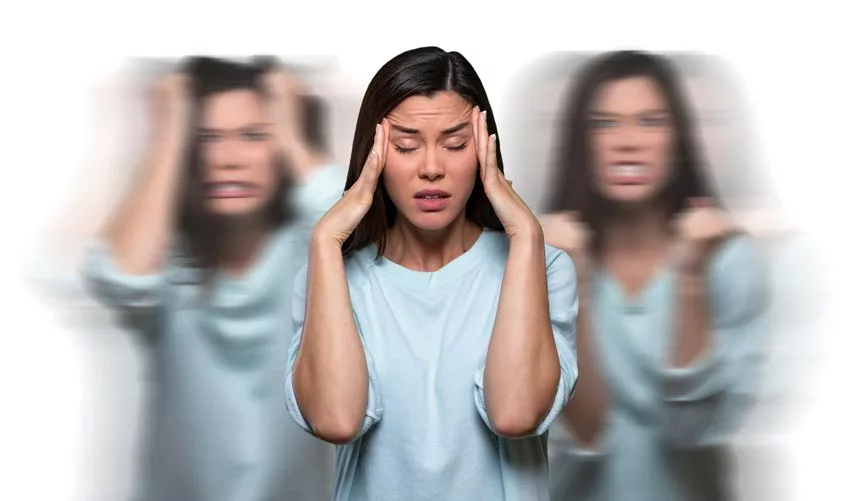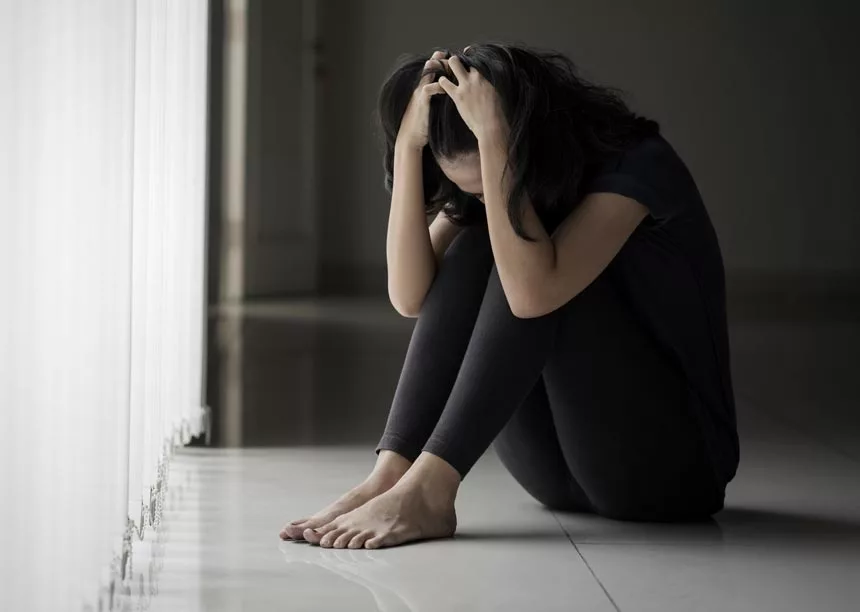
What Is Psychosis?
Psychosis is a catch-all term that refers to when a person loses touch with reality. When a person is in the grips of psychosis, it’s nearly impossible to tell the difference between reality and what’s in their heads. In popular culture, many people associate psychosis with other mental illnesses, but it can also be a one-off experience just as well. While it’s not that rare, it can be a terrifying experience for someone who is healing from a psychotic episode for the first time. It can be challenging for those who have to deal with the condition regularly to live a normal life.
The way each person experiences a psychotic episode may differ depending on the individual mental state and environment. During these episodes, it’s common for someone to see or hear things that don’t actually exist. These interactions can lead a person to doubt their own senses and create an unsettled feeling. The National Alliance on Mental Illness notes that three percent of the US population experiences at least one psychotic episode a year.
How Long Does Psychosis Last?
Table of Contents
It might be worrying for a person with psychosis to consider the things they’re hearing and seeing. Some bouts of psychosis are drug-induced. The drugs that typically lead to psychosis include marijuana, meth, and LSD. After a person takes these drugs, they start to develop symptoms of psychosis, including hallucinations, disorganized behavior, thought patterns, and delusions. Psychosis may result after taking the medication or when a person enters detox and goes through withdrawal.
Free Mental Health Assessment
Unfortunately, there’s no solid timeline for how long drug-induced psychosis lasts. Some psychotic episodes are very short windows of time, whereas others can span for hours at a time. Psychotic episodes have been recorded as lasting for weeks or even months. The duration of psychosis depends on the type of drugs used, how long those drugs were taken, and how strong the dosage was. Drug-induced psychosis may not even be wholly due to the drugs themselves. It’s not uncommon for individuals to discover latent chronic mental illnesses after taking these drugs. Psychosis, in this case, may stem from those disorders and not from the drugs themselves.
Signs And Symptoms of Psychosis
It’s tempting to label psychosis as a disorder, but it’s actually a symptom of another underlying health problem. Psychosis shows up in relation to schizophrenia, major depression, or bipolar disorder. A psychotic episode usually progresses through prodromal, acute, and recovery phases. The prodromal phase is a gradual change in mentality leading up to the acute phase. The acute phase is when most symptoms present. Among the signs and symptoms that show up in the acute phase are:
- Hallucinations: Patients are likely to see something that isn’t there but will insist that it is. Hallucinations aren’t limited to visions, but a patient may just as quickly hear people or things that aren’t present.
- Confused Speech: Psychosis makes it very difficult to focus on anything, including speaking for oneself. Thought patterns can become jumbled in the patient’s head, making what they say come out garbled and confused.
- Delusions: A delusion is the unerring feeling that something is true, even though it seems totally irrational to others. Some delusions can be dangerous and lead to changes in behavior that could cause serious injury to the patient.
- Severe Anxiety: Anxiety usually results when a person loses touch with reality. They can’t trust their own senses, so, naturally, they would feel extremely anxious about the world around them.
- Improper Behavior: Social rules exist so that people behave politely in company. In a psychotic episode, it’s unlikely that the patient will pay attention to social cues and will often act in a completely socially unacceptable way.
- Dramatic Mood Swings: Mood changes can happen, but a person going through a psychotic episode will likely experience severe mood swings that may occur without any warning or lead-in.
It’s possible that a person may not have all of these symptoms but may only demonstrate a few of them during their psychotic episode. What could lead to a person suffering from such a condition?
What Are the Risk Factors For Psychosis?

Unfortunately, medical science isn’t as yet sure about what causes psychosis. However, the medical profession does know that several overlapping factors may contribute to a person who has psychosis. Hormonal changes in a person’s brain during puberty increase their risk of psychosis, which is why teenagers tend to be more likely to suffer from psychotic episodes than adults. Several factors can make a difference in whether psychosis occurs in teenagers or adults, including:
- Substance Use: Drug-induced psychosis, as mentioned above, is a common way for individuals to experience psychotic episodes for the first time. If someone is already vulnerable to a psychotic episode, these drugs can be the added push to cause the episode to occur. Unfortunately, there is usually no forewarning before the break occurs.
- Trauma: Some traumatic events may be the trigger for a psychotic episode to occur. The class of traumatic events and the person’s age play a significant role in the type of psychotic event and how long it lasts.
- Genetics: Several genes play a part in whether a person is susceptible to psychosis or not. Just because a person has a particular representation of a gene doesn’t mean they will have psychosis. These genes only hint at whether psychosis may occur, given other factors.
- Physical Injury or Illness: Some physical brain injuries can increase the chance of psychosis in vulnerable individuals or trigger psychosis themselves. Injuries such as traumatic brain injuries, strokes, HIV, brain tumors, and diseases like Parkinson’s or Alzheimer’s can all contribute to psychosis.
- Mental Illness: Some mental illnesses usually have psychosis as a symptom of the disease. Bipolar disorder or depression are good examples of conditions that present psychosis as a symptom of the disease itself.
Is Psychosis a Part of Another Mental Illness?
As noted above, mental illness may lead to psychosis as a symptom. Several mental conditions exist that have psychosis as a symptom.
Schizophrenia
A patient that displays a mix of “positive” and “negative” symptoms may be diagnosed with schizophrenia. Positive symptoms happen in addition to a patient’s regular interaction with their surroundings. They may include hallucinations, delusions, or disorganized thinking. Negative symptoms take away from everyday experiences. These symptoms may consist of low motivation and sex drive, difficulty in setting goals and planning, slow movement, and change in sleep patterns, among other things.
Bipolar Disorder
Bipolar disorder impact’s a patient’s moods. Typically, a patient who has bipolar disorder goes through heights and troughs in their moods. At their heights, they suffer from mania, while they go through severe depression at their lows. Not all people with bipolar disorder experience psychosis, but it does happen. A patient may, for example, feel as though they are invincible and that they can do anything. This might lead them to take risks that could end with them being hurt or worse.
Depression and Psychotic Symptoms
Major depression is another diagnosis that may reveal psychosis as a symptom. Lack of motivation and energy coupled with the idea of feeling guilty about some undefined action are typical psychotic symptoms that may stem from depression. This, in turn, leads to a loss of appetite and improper sleep patterns. These issues compound on one another and may lead a patient to spiral deeper into depression.
Can A Psychotic Episode Stop on Its Own?
A psychotic episode can stop on its own. However, waiting out the situation may be risky since there’s no telling how long an episode will last. Brief psychotic episodes and those stemming from drug use typically fade on their own with time. However, if the psychosis contains from another mental illness, it may linger. When a person has psychosis and gets treatment, there’s usually a reduction in the duration of the psychotic episodes. As soon as symptoms occur, a person should seek out professional help since it gives them the best chance to deal with the symptoms of their psychosis.
When To Seek Help for Psychosis

Many people are wary of seeking help after their first psychotic episode. If the episode was drug-induced or was a brief psychotic break, they might just brush it off. However, these telltale signs might be clues that could lead to a more lasting condition. Seeking help as soon as the disease’s symptoms are present allows people to start dealing with their illness early on. Monitoring the condition as it progresses can allow a professional to better tailor treatment to a particular patient. Psychosis isn’t a situation that’s cured overnight. It will take some time, but with professional help, it is possible to deal with it.
What To Do When Someone Is Having a Psychotic Episode?
A psychotic episode isn’t just scary for the person going through it, but it can be just as terrifying for bystanders. If someone you know is having a psychotic episode, don’t panic. Instead, you should follow these guidelines:
- Speak clearly, calmly, and in a non-threatening tone, and keep your sentences short
- Be empathetic to the patient about their beliefs and feelings
- Validate the patient’s experiences and frustrations, and highlight the positives of the experience
- Listen to how the person explains their experiences to understand them better
- Don’t state any judgment about the person’s belief
- Don’t challenge, argue, or confront the person
- Understand that they may not want to speak to you, but be open to the fact if they decide to later on
- Treat the patient with respect
- Be mindful of the patient and the fear they must feel in that situation
Immediate Placement for Mental Health Treatment
Effective Treatment Methods for Psychosis
Treatment for psychosis can span several therapies. Talk therapies like Cognitive Behavioral Therapies for psychosis (CBTp) provide a way for patients to understand their feelings and deal with the negative emotions that may trigger an episode. Therapists will encourage patients to discuss their experiences and learn what negative triggers might lead them to have episodes. When the patient spots these triggers, they can control the effect they may have on them. Family intervention therapy may also work to prevent a person’s psychotic breaks. This methodology focuses on people close to the patient, allowing them to help when the patient starts feeling a breakdown coming.
Find Lasting Freedom from All Forms Of Psychosis
Treatment centers like Emerald Isle have a track record of dealing with individuals who suffer from psychosis. Our treatment facility is staffed by mental health professionals trained in helping others cope with psychosis. Are you tired of feeling alone and afraid about when a psychotic episode is going to happen? Do you wish you had the tools to deal with them before they occur? Contact us today to find out how we can help you cope with psychosis. You don’t have to be afraid of this condition anymore.








